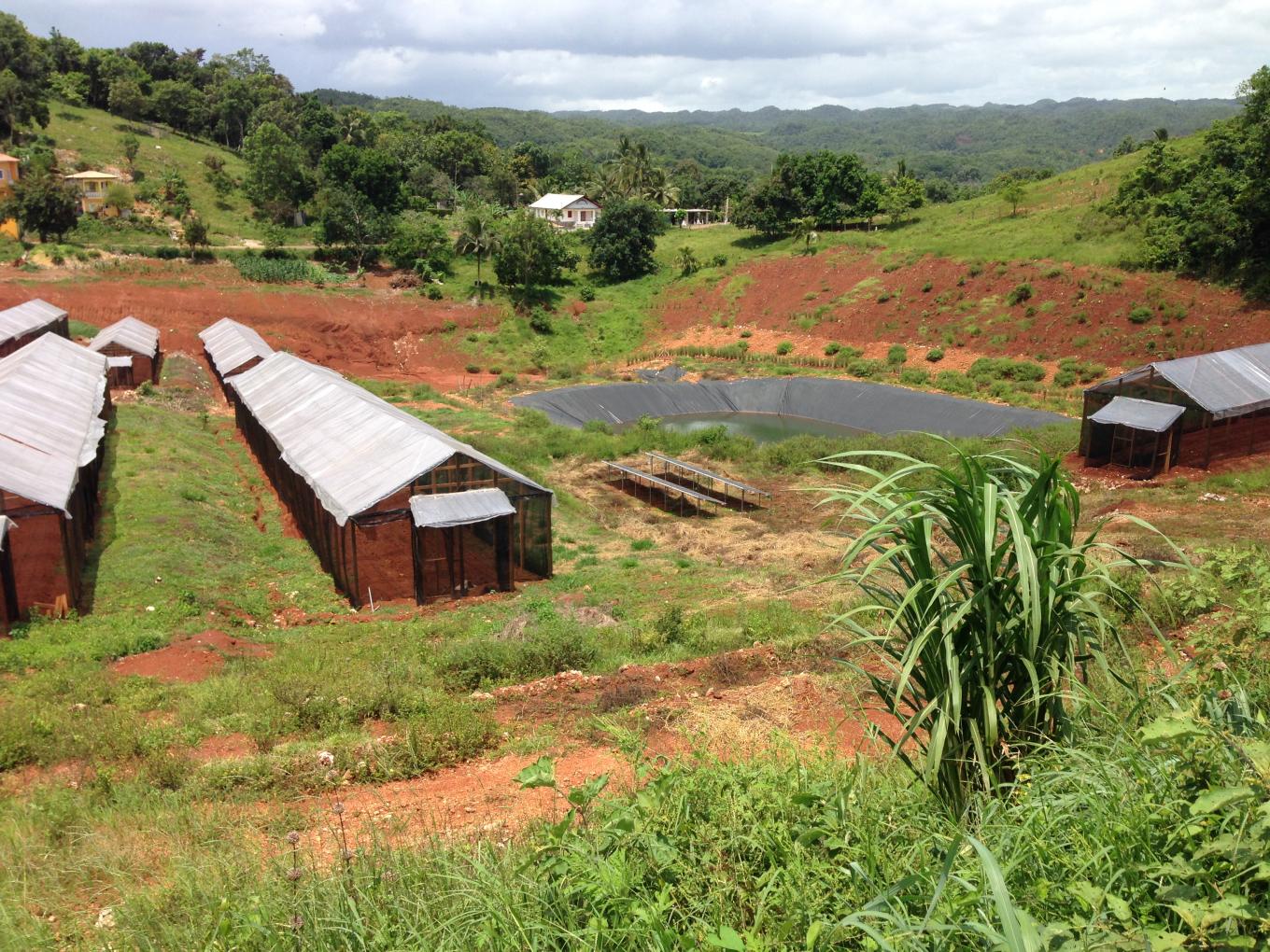With support from IICA, representatives from Jamaica, Haiti, Antigua and Barbuda, Suriname and Guyana received training in sustainable soil management practices and processes for remediating soil degradation.

Kingston, Jamaica, 24 June 2016. (IICA). Forty representatives of the public and private sectors in five Caribbean countries participated in a training course in Jamaica that will enable them to better contribute to improving soil quality. The course sought to promote sustainable land use to allow the agricultural sector to better adapt to climate change.
Organized by the Inter-American Institute for Cooperation on Agriculture (IICA), the course provided an opportunity for participants from Jamaica, Haiti, Antigua and Barbuda, Suriname and Guyana to review basic concepts of this topic. The participants also broadened their knowledge of sustainable practices and technologies for soil management, agricultural productivity and climate change adaptation, and learned how to implement remediation and reclamation processes for degraded land.
“Soil is the sustainer of life on this planet. It is our responsibility to sustainably manage land and soil; we owe it to our children and to those coming after us to ensure that land is in a better state than that in which we found it. The use of organic matter to remediate degraded soil is part of our toolbox to reverse soil degradation trends,” stated Abimbola Abiola, IICA Representative in Haiti.
Soil degradation is a phenomenon that reduces the ability of soil to provide ecosystem services. Human activities and climate affect the depth, organic matter content, pH, salinity and fertility, among other properties, of soil. Inadequate soil management or use in agriculture or mining also alters soil properties.
The use of unsustainable agricultural practices can cause erosion, sedimentation in rivers, exhaustion and degradation of water sources, loss of native vegetative cover and biodiversity, all of which result in greater vulnerability to climate change and a reduced ability to produce agricultural commodities and services. As a result, capacity-building to address these issues is highly important.
“The impacts can be lessened through the use of sustainable land management approaches or soil management strategies that could help to maintain ecological resilience; provide stable ecosystem services; sustain microbial, plant and animal life; increase vegetative cover; increase organic matter; and increase carbon sequestration, among other things,” stated Ainsworth Riley, IICA’s Agribusiness Specialist in Jamaica.
According to one of the lecturers from the University of West Indies, Gaius Eudoxie, small islands in the Caribbean have small areas of arable land that are used for multiple purposes, which compromises food security. “Our main interest is to drive efforts to improve land, avoid soil deterioration that leads to desertification, promote ecological services, minimize pollution and enjoy the aesthetics,” he stated. Eudoxie also explained that the impacts of soil degradation can be mitigated through remediation processes that make soil more resistant and resilient in the face of climate change.
The course highlighted the importance of organic matter in soil and organic inputs for soil recovery. “Increasing organic matter is one of the general principles of soil management. The use of added inputs, such as plant decomposition, can efficiently provide nutrients to the soil or help protect or shield it from climatic conditions,” stated Karen Montiel, IICA Specialist in Competitiveness and Productivity.
“Organic matter helps dry soil to recover, resulting in productivity that is much higher than what is attained through conventional practices. I add charcoal and manure to soil, and the result in terms of plant growth and pest control is very good,” stated Gregg Skepple, a farmer in Antigua and Barbuda.
The course, comprising three modules, lasted four days and included a field trip that allowed participants to apply the knowledge they acquired. An expected outcome of the course is for participants to sensitize other stakeholders to topics addressed in the course, and to promote the dissemination of innovations and good practices in their countries.
Positive changes
Soil degradation in some Caribbean countries such as the Dominican Republic and Suriname has resulted from gold and bauxite mining, which cause pollution and high levels of toxicity that lower the fertility of soil used for agricultural purposes.
The countries implemented several strategies to increase the quality and resilience of soil in the face of climate change, including adding organic matter, improving nutrients, growing different types of grass, enhancing plants and biodiversity (native species), and using tillage or physical barriers to protect land from water and wind.
Several of IICA’s technical cooperation instruments focus on promoting sustainable soil management. The Institute’s Flagship Project entitled “Resilience and Comprehensive Risk Management in Agriculture” seeks to strengthen the capacities of key stakeholders in Latin America and the Caribbean to increase the resilience of agricultural systems in order to address climate change and other environmental impacts. The course held in Jamaica is just one of the initiatives of this project.
More information:











